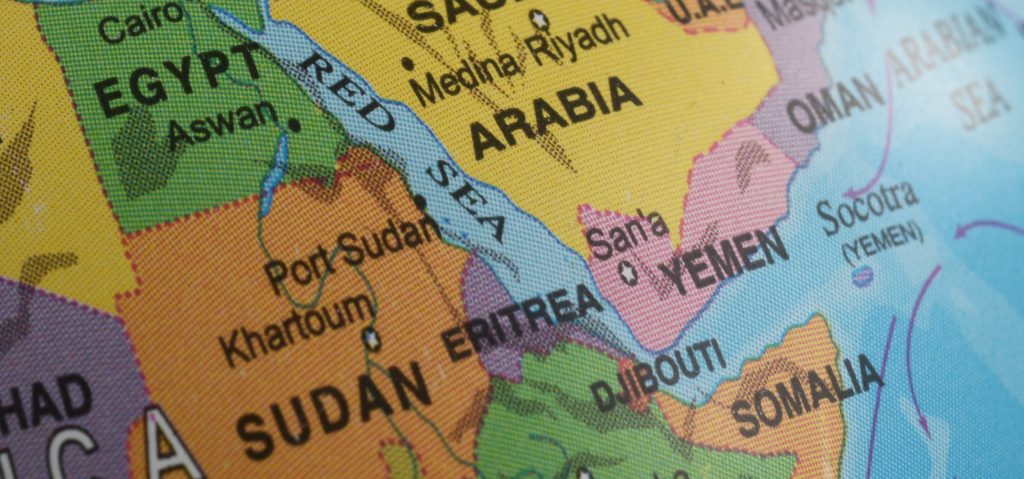OGR Spotlight: Yemen
Our call as Christians to respect the dignity of every human being means we must also look beyond our borders. The conflict in Yemen has been an overlooked humanitarian catastrophe, generating little media coverage despite its magnitude and scale. As global citizens and members of the body of Christ, we must speak up in support of those who are suffering and work to alleviate their pain, especially for those who have no voice of their own. We speak out now in partnership with our Anglican presence in Yemen and in solidarity with the humanitarian work they do. In our work at the Office of Government Relations, that means advocating for policy solutions that end violent conflicts while acknowledging the complex role the U.S. government plays.
Today we are turning the spotlight on Yemen. Below is some basic information about the ongoing conflict there. We urge you to raise this issue with your legislators and educate family and friends about what is happening there. Raising our voices and increasing awareness will send a strong message and compel the U.S. and other countries to truly address this humanitarian catastrophe.
Background

The conflict in Yemen originally arose from a political transition that failed after Yemen’s authoritarian leader, Ali Abdullah Saleh, handed power to his deputy following an Arab Spring uprising. Since ascending to the Presidency, Abd Rabbuh Mansour Hadi has struggled to lead his country due to attacks from armed groups, an ongoing separatist movement, the wavering loyalty of government forces, corruption, unemployment, and food insecurity.
The Houthi movement, based in the north, has been the biggest challenge to Hadi’s rule. In 2014 the deposed President, Saleh, formed an alliance with the Houthis after overcoming their disagreements, leading to their seizure of Yemen’s capital Sana’a and forcing President Hadi and his government to temporarily resign. This gave the Houthis extensive influence over state institutions and politics. President Hadi escaped to Aden and reestablished his government while living there. In March 2015, a coalition of Gulf States, led by Saudi Arabia, began isolating Yemen economically and launched military strikes against the Houthi insurgents. The Saudi-led coalition continues to provide assurance and support to the Hadi government.
Current Status
Currently the war is an ongoing stalemate. UAE, the United States and other Western nations support the Saudi Arabia military activities in Yemen. The United States, Saudi Arabia, UAE, and other Western nations support the Hadi government directly and indirectly. On the other hand, Iran supports the Houthi insurgents. Yemen’s former President Saleh was assassinated when he attempted to defect from the Houthis.
The ongoing war has caused a massive humanitarian crisis in Yemen. The civil war has left an estimated 24 million people in need of vital assistance, 3.7 million displaced, more than 100,000 dead, and uncounted numbers injured. In addition, Yemen continues to face famine conditions as a result of this conflict, and peace talks among warring factions have stalled over and over again.
U.S. Response
Members of Congress have introduced legislation aimed at influencing U.S. government response to the conflict. The House and Senate passed companion resolutions (H.J. Res.37/S.J.Res. 7) directing the removal of unauthorized U.S. Armed Forces from hostilities in Yemen. President Trump vetoed the final resolution, and the Senate failed to garner enough votes to override the veto. Other bills have been introduced in the House and Senate but await passage.
The U.S government has engaged in a multi-pronged response to the conflict in Yemen. While it supports the United Nations efforts to find a political settlement, the U.S. continues to provide military assistance to the Saudi-led coalition, including the selling of armaments and munitions to the coalition in support of the US export market. It also continues to provide funding contributions for humanitarian aid.
More Information
Yemen: Civil War and Regional Intervention
Mapping the Yemen Conflict
U.S. Arms Deal with Saudi Arabia
American Weapons Used in Yemen War
The Episcopal Church Resolution on Yemen
Contact:
The Office of Government Relations
eppn@episcopalchurch.org

